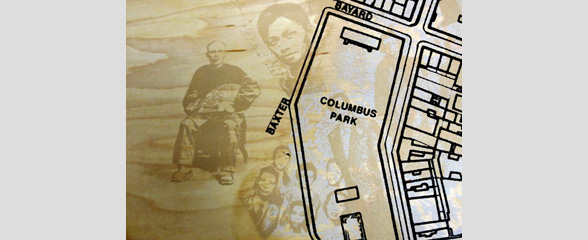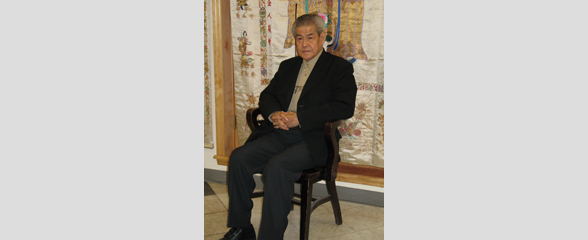Traffic congestion

2008.040.023 Oral History Interview with Toby Turkel March 28, 2008
Toby Turkel is a Jewish woman who was born and raised in East New York, Brooklyn, and moved to Chinatown in the mid-seventies. She is an active community member, serving as the president of Chatham Towers, a co-op in Chinatown, as well as the vice president of Synagogue for the Arts. During this oral history, she begins by discussing her childhood in East New York and her personal journey that led her to live independently on the Lower East Side beginning in the sixties. Turkel later got married and moved into Chatham Towers, an apartment building located in Chinatown and predominantly inhabited by Asians. She explains how her relationship with the Chinatown community has grown over time and how she feels privileged to experience its unique culture, affectionately describing the area as “gritty†and down to earth. She also reflects on her unusual circumstance of being a non-Chinese resident of the neighborhood.
Turkel goes on to describe some of the issues affecting the Chinatown neighborhood that arise during the Chatham Tower board meetings, such as placard parking, congestion pricing, the proposed reconfiguration of Chatham Square, and the “Chinatown arch.†She also discusses the pros and cons of a proposed Chinatown Business Improvement District [BID], which would assess businesses and buildings and collect funds from landlords for community improvement. Although she recognizes there are some positive outcomes of gentrification, Turkel rejects changes that would threaten the fundamental character and distinctness of the Chinatown neighborhood.

2008.040.027 Oral History Interview with Sing Kong Wong February 8, 2008
After being petitioned by his wifes family, Sing Kong Wong, a former administrator for a government agency in China, immigrated to New York in 1980 where he worked as a presser in a garment factory. Wong illustrates the poor working conditions in the garment factories, commenting on the lack of sanitation, violations of workers rights, and inadequate benefits and welfare. He explains how the steady decline in the garment industry has been especially problematic for immigrant populations, as they are unable to find other jobs and have limited financial means to pay the rising rent. Wong believes that the decline in garment factories began with the U.S. legislation that permitted jobs to be outsourced to Mexico, China, and India. After the events of September 11th, the situation worsened as landlords demanded higher rent and as zoning changed residential areas to commercial and business spaces.
Wong mentions that as a way to remember his past life and to share important life lessons with future generations, he has photographed personal and historically significant subjects and occurrences relevant to his life and experiences. Such subjects include the harsh conditions in garment factories, life in Chinatown, and the events of September 11th. He continues to describe the changes in Chinatown occurring over the past thirty years, like the improving tolerance and relationships between ethnic and provincial groups and the greater appreciation for Chinese culture and traditions.
Finally, Wong elaborates on his views regarding gentrification, worrying that people with lower-incomes will suffer the consequences of uncontrolled rent prices, eviction, real estate development, and a poor job market. He suggests that the government should be more involved in maintaining the parks, providing more recreational programs for the community, and fixing local traffic problems. Wong asserts that progressive and proportionate improvements are necessary, but these improvements must serve all residents and not just the wealthy.